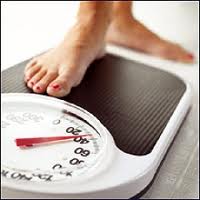The Science of Weight Loss
Calories. You count them, cut them, obsess about them – but do you know what they actually are? Nutritionally speaking, calories are a measurement of energy. This energy, present in foods and beverages, is burned to keep your body working and moving or else stored as fat for later use. If you consume fewer calories than you burn, you’ll lose weight. If you consume more than you burn, you’ll gain weight. It’s just that simple. 
Since one pound of body weight equals about 3,500 calories, to lose that pound you have to either decrease your intake by 3,500 calories or burn 3,500 calories through exercise (or do a combo of cutting calories and upping exercise), over a period of time. If you drop 500 calories a day, for example, you’ll lose one pound in a week (500 calories x 7 days = 3,500 calories lost).
If cutting calories leads to weight loss, then drastically cutting calories must lead to very fast weight loss, right? Wrong. First, an extreme diet leads to insatiable hunger, priming you for a major diet setback, like a food binge. Even worse, when you don’t’ eat enough calories, you send your body into starvation mode. Your metabolism slows down so your “starving” body can maintain its weight. And that’s not all. When you start eating normally again, your metabolism will remain sluggish for a time; that means you will regain weight quickly as your body efficiently stores the suddenly increased calories as fat.
The trick is to create a calorie deficit so you lose weight at a healthy pace – about one to two pounds per week.
If you like most people, you have no idea how much food you consume on a day-to-day basis. Thanks to multitasking, grabbing snacks on the go, scarfing down your kids leftovers, and various other weight-loss saboteurs, it’s hard to keep track of what you eat. Maybe you indulge in more sweets at work because you coworker keeps a candy jar on her desk. Perhaps you have French fries several times a week because you pass McDonald’s on the way home. Or maybe every time you worry about money, you retreat to the kitchen for ice cream. But once you begin to notice your patterns, you can figure out ways to change them.
Remember, your goal is to drop weight at a healthy (and achievable!) rate of about one to two pounds per week. So, while it might seem like a swell idea to combine every tip to try to peel off the pounds in just a few days, if you do, you’ll quickly learn it’s not only impossible, it’s also miserable to even try.

